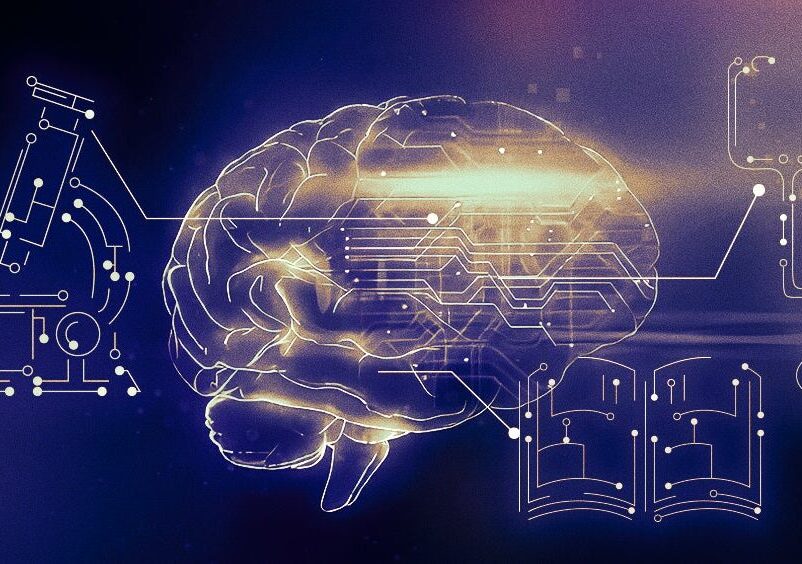
As governments race to create regulatory guardrails for the development of artificial intelligence (AI), it is essential Namibia is not left behind and that AI applications accessible in Namibia benefit everyone.
This article provides practical recommendations on how Namibia should approach AI regulation.
The Organisation for Economic Co-operation and Development (OECD) recently defined AI as “a machine-based system that, for explicit or implicit objectives, infers, from the input it receives, how to generate outputs such as predictions, content, recommendations, or decisions that can influence physical or virtual environments.
“Different AI systems vary in their levels of autonomy and adaptiveness after deployment.”
Our use of the OECD definition is intentional because it illustrates the need for an African grown definition that speaks to AI in our context.
‘AI FOR ALL’
As recently highlighted by UN secretary general António Guterres, the design, development and use of AI requires guardrails to ensure everyone benefits, especially marginalised communities (most of whom are still offline).
As a tool, AI can play a beneficial role such as helping communities who live in low-resource settings.
For example, leveraging AI to improve healthcare, help farmers increase crop yields, improve organisational efficiencies, and enhance the management of energy such as green hydrogen or oil.
Namibia aspires to become a world leader in clean energy production.
Once production starts, AI-driven algorithms will play a key role in enhancing planning for supply and demand, providing precise predictions for fluctuating renewable power generation or energy demand.
Additionally, AI can be used to forecast hydrogen prediction, optimal temperature and pressure conditions.
In the context of oil and gas, we can use AI to detect potential environmental hazards early by analysing aerial or satellite imagery to identify oil spills in our marine environments.
RISKS
Despite these opportunities, AI also poses risks to society.
In fact, AI is already causing harm, such as bias, inequality and exploitation of data workers.
For example, a study using computer vision (a branch of AI), shows that state-of-the-art algorithms used to analyse medical images can be biased towards people of colour when attributes such as race and gender are included in the training.
This can result from unrepresentative data used to train the model used.
Also, many of us who have used OpenAI ChatGPT, have observed how this tool underperforms (produces gibberish text) when applied to African languages.
The unregulated advances of AI, especially generative AI, in critical sectors, pose serious risks.
Therefore, Namibia should not wait for Europe or America to start regulating AI. We should take a proactive approach to ensure AI systems available to citizens are ethical.
APPROACHES
In the current discourse on AI regulation, four approaches have been suggested: AI-mandatory disclosure, registration, licensing and auditing.
For example, the European Union (EU) has taken a legislative approach to classifying AI systems and enforcing specific reporting and oversight obligations based on risks.
On the other hand, the US framework emphasises the blueprint for an AI bill of rights that ensures that AI systems work for all American people.
Other discussions in the US include the SAFE Innovation Framework to address liability, bias and intellectual property in AI applications and the NIST working group to tackle risks posed by generative AI.
The UK has taken a pro-innovative stance, building on the implementation of AI principles by existing regulators and introducing a new set of ‘central functions’ to bolster these efforts.
We are not suggesting Namibia should follow the EU or American or British approaches.
Rather, Namibia must answer the critical question of what a Namibian AI bill of rights will look like.
To answer this, we should take an agile and pragmatic stance that will ensure any policy aimed at governing the development, deployment and use of AI technologies is practical.
Practical considerations will provide meaningful accountability and empower innovators to explore the technology to solve local problems that are globally relevant.
The alternative is a hasty implementation of impractical regulations without understanding the technology.

CONSIDERATIONS
Considerations for Namibia must include the following:
• Ethics: The regulatory framework should be based on the ideals of Ubuntu and human rights. Ubuntu-based values will ensure AI algorithms encompass African humanity, unbiased and accountable.
• Agile framework: Technology changes rapidly, so we need an agile approach to regulating technologies such as foundational models (general purpose AI). One way is to use the ‘regulatory sandbox’ approach.
• Data governance: AI systems rely on large amounts of data. Thus, Namibia needs robust data regulation that addresses the power relations related to data ownership and safeguards data privacy.
• Capacity building: Technology is not cheap. We need to invest in coding and interdisciplinary education to empower Namibians to actively contribute and shape the AI ethics discourse.
• Collaborative: Inclusive engagement with all stakeholders to ensure diverse perspectives are considered.
Though regulation can help address the risk AI poses, it can also stifle innovation.
Therefore, Namibia needs to take a balanced approach and ensure its approach fosters public trust in the technology, drives government modernisation, and further positions Namibia as a leader in AI on the continent.
This week, the African Union is meeting to discuss “the Draft Conceptual Framework of the Continental Strategy on Artificial Intelligence (AI)”.
The AU Working Group on AI is proposing a framework that aims to lay the foundations for addressing the technological, ethical, economic, security and social perspectives of AI (https://au.int/en/5thstccict).
It exemplifies what we are advocating for Namibia, where Africa takes the reins on what AI can mean on the continent.
It is too early to see where this will lead, but it is a step in the right direction on a continent with the youngest people on Earth, and who will make up most of those affected by future AI systems.
REALITIES
In conclusion, AI is not a future prospect, but a present reality. It is here and already impacting industries.
It influences the way we write and the information available to us to make decisions that affect us daily.
AI systems can bring extraordinary benefits to humanity just as they can potentially cause harm.
In Namibia, we must determine what benefit and harm look like in our context and create policies and a framework that guide the direction we need to take. Timely and informed regulation is crucial.
To effectively regulate AI, it is important for policymakers to gain a basic understanding of how AI systems work.
Unlike static systems, AI is continuously evolving. Policymakers need to comprehend its dynamic nature to create regulations that can adapt to the rapid advancements in technology.
- Lameck Mbangula Amugongo is an artificial intelligence specialist and AI ethics adviser based in Europe. He holds a PhD in cancer science from the University of Manchester. The views expressed are his own.
- Tutaleni I Asino, PhD, is an associate professor in learning, design and technology, and director of the emerging technology and creativity research lab at Oklahoma State University’s College of Education and Human Sciences. The views expressed are his own.



